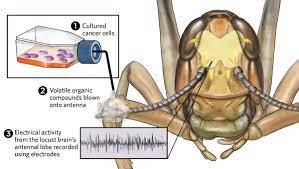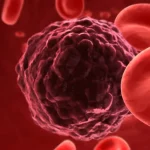In the captivating realm of olfaction, where distinct scents evoke various reactions, a fascinating study delves into the neural intricacies behind our preferences. Barani Raman and Rishabh Chandak from Washington University explore how insect brains decode appealing and unappealing odors, shedding light on the foundations of preference and learning.
Smell’s Surprising Role
The study’s insights extend to the relationship between smells and behavior. With findings published in Nature Communications, the researchers emphasize how an organism’s attraction or aversion to certain odours is interlinked with its learning ability. This unveils how the timing of rewards shapes our capacity to acquire knowledge.
Insect Senses
Drawing upon the distinctive olfactory system of locusts, the study examines parallels between their neural responses and those of dogs and humans. These remarkable insights offer a deeper understanding of how olfaction isn’t just a sensory experience for insects; it’s a crucial tool for finding sustenance, identifying mates, and detecting predators.
In the Martian Alien Search with 239 Million-Year-Old Fossils, the pursuit of discovering extraterrestrial life leads scientists to an unexpected source: microscopic fossils embedded in ancient Earth lava rocks. A recent Astrobiology study emphasizes the value of these tiny Triassic fossils, concealed within seafloor basalt cracks. Their insights hold the potential to guide the quest for evidence of ancient life on Mars and other cosmic realms.
With the mysterious interplay of smells and behaviour in mind, Raman and Chandak embarked on a journey to unravel how neural signals drive food-related actions in locusts. Specific odours trigger the use of specialized appendages called palps by these insects to capture food. The study categorizes odorants into two categories: appetitive, triggering the innate food-grabbing behaviour, and unappetitive, eliciting no such response.

To comprehend the factors behind odor preferences, Raman and Chandak exposed hungry locusts to different scents for four seconds, gauging their neural reactions. The study unearthed a correlation between neural responses and behaviour, suggesting a predictive pattern. This paves the way for understanding how the brain’s processing of odor information influences subsequent actions.
Intriguingly, locusts not responding to the presented odors prompted the researchers to investigate their trainability. Employing a Pavlovian approach, the team associated odor exposure with food rewards. Through meticulous timing, the locusts associated appealing scents with rewards, showcasing the brain’s adaptability. The experiment also revealed the impact of reward timing, on the learning process and the brain’s responses.
The study’s revelations extended to paradoxical outcomes: training with aversive stimuli heightened responses to pleasant ones. A computational model, proposing early segregation of behavior-relevant information in sensory inputs, provided insight into this phenomenon. Ultimately, this study prompts philosophical contemplation about sensory experiences, reaffirming that our brains inherently sort sensory signals upon entry. The enthralling world of insect smells reveals how neural signals shape behaviour and learning. As we ponder the profound impact of smells on our lives, this research contributes to understanding the intricate links between the brain, behavior, and perception.
For further information: https://www.ncbi.nlm.nih.gov/books/NBK200986/
Read our previous articles: https://scitechupdate.com/index.php/treated-wastewater-exerts-an-impact-on-our-rivers/ https://scitechupdate.com/index.php/india-makes-history-by-landing-a-spacecraft-at-the-moons-south-pole/
https://scitechupdate.com/index.php/zinc-air-batteries-could-be-cheaper-and-safer-than-lithium-ion/
https://scitechupdate.com/index.php/android-14-satellite-sms-for-everyone/
https://scitechupdate.com/index.php/chemistry-entrepreneurship/
https://scitechupdate.com/index.php/waste-paper-to-battery-components-for-smarts-phones-vehicles/https://scitechupdate.com/index.php/ai-demonstrated-95-accuracy-in-listening-typing-and-data-processing/
https://scitechupdate.com/index.php/top-7-technology-trends-of-2023-from-ai-to-5d-technology/

